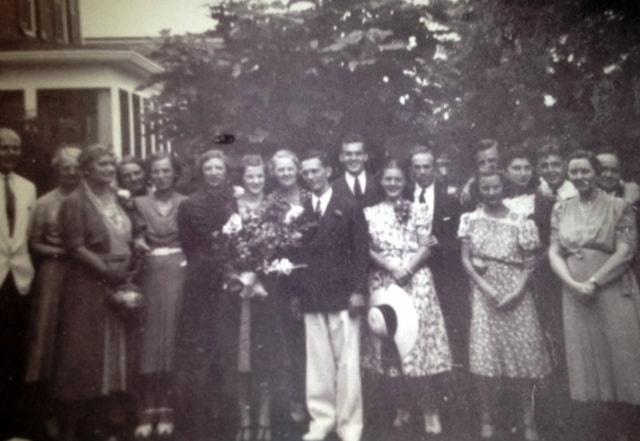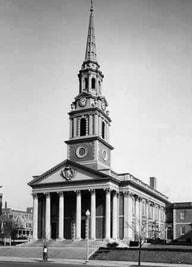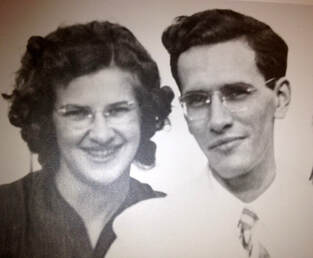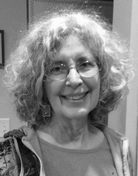The first time my parents met, my mother had recently graduated from Boston University and was working as a nanny in Beverly Farms, Massachusetts. She was also engaged to be married; heartbroken after the breakup of a long college romance, she had impulsively accepted the proposal of a young man she'd recently met through Mary. One day my father tried to look up Mary in Gloucester during a brief trip to New England and learned that Mary was visiting a friend named Elsa in Beverly Farms. So my father made his way to Beverly Farms, where he found Mary and met my mother and her fiancé, who was also visiting.
And that was that; King returned to his engineering studies at Cooper Union in New York and Elsa resumed preparations for her upcoming wedding. They parted with no expectation of ever meeting again.
Then my mother suffered a devastating blow. Shortly after her wedding, her new husband simply walked away from my mother and the marriage. My mother’s only hope for getting her life back on track was a divorce - easy enough to obtain today but so expensive (at a time of widespread economic hardship) and protracted then that it threatened to destroy her chances of happiness. Despondent and desperately in need of a change of scene, she moved to the Bronx, finding a job as a mother’s helper to earn the money she needed for the divorce. Fortunately, someone warned her to maintain her legal residence in Massachusetts, where three years’ desertion was grounds for divorce; in New York, divorce was granted only for adultery. While she waited out her three years, she was careful to maintain her voter registration in Massachusetts and to vote by absentee ballot.
As my mother’s first Christmas in New York approached, Grace sent King a Christmas card with a note saying, "Elsa Dahart, whom you will remember meeting when you visited Mary Baptiste about a year ago, is now living in the Bronx, and doesn't know anyone else in town. Her phone number is…” My father being my father, he gave my mother a call, and although it couldn't yet be said that the rest was history, my mother was gradually drawn into my father's large circle of friends.
An anecdote shared with me by Grace reveals a lot about both of them at that moment: As my mother approached her 25th birthday, her divorce decree finally within reach, she still couldn’t help feeling that life might have passed her by. After all, she had always planned to be married and have a child by the time she reached 25, and as she began telling her friends, everything had now gone wrong. One day my father, upon hearing this plaint, said, "Well, now that you have lived your life, what do you plan to do next?" This comment struck everyone as so comical that even my mother laughed.
Although my parents had by now become close friends, my mother was quite shocked when my father proposed marriage. Until now she had regarded him as “just” a friend; understandably wary of another such commitment when she was still awaiting the official dissolution of her disastrous first marriage, she took several weeks to think about it. But as Grace put it, “King was so kind and understanding, and made her feel he did truly love her—and they had gotten to know each other so well during a long platonic friendship…,” she finally agreed to marry him.
A week later, they were married in the All Souls Unitarian Church in Washington DC.
My mother, who had attended the Methodist Church as a child, converted to Unitarianism when she and my father became a couple and it suited her for about the same reasons it suited my father - though she always thought the Methodists had better hymns.
As I have mentioned elsewhere, my parents were legendary among their friends for how well they got along. I have thought about this a great deal. It was definitely not a case of not caring enough to get angry. Obviously they maintained good communication and practiced mutual respect, patience, and kindness - all those good things - but I also think part of the magic was rooted in their 1950's style division of labor. For the most part, they each had their own spheres of responsibility, and within those spheres each abided by the decisions of the other.
Sadly, their lives together were cut short by my mother's untimely death in 1965 at the age of 52. Her dreams for their old age and all the wonderful things they would do together after the children were grown never materialized. Possibly because of the division of labor mentioned above, our father was ill prepared to take over her responsibilities. Our family had lost its anchor.





 RSS Feed
RSS Feed